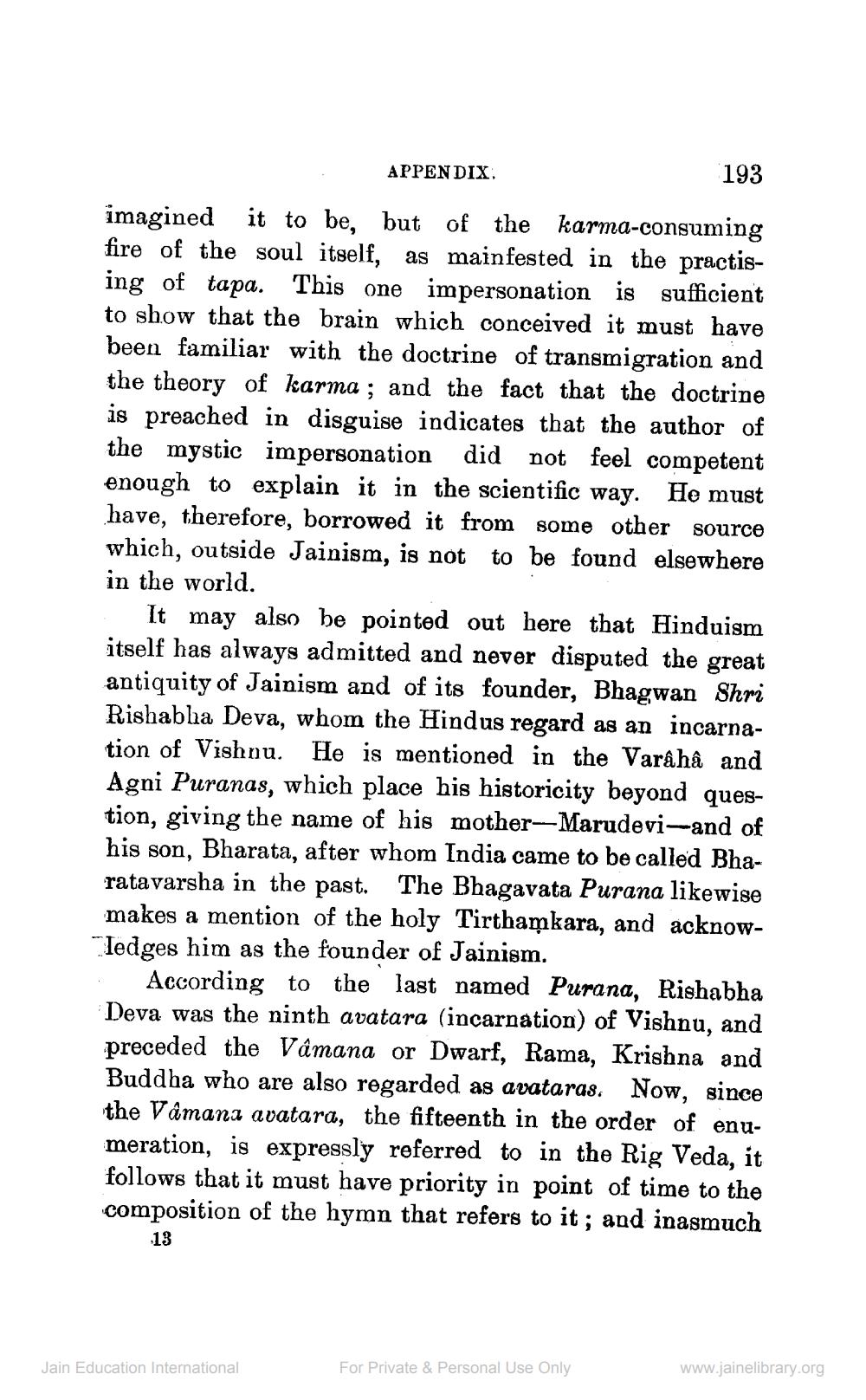________________
APPENDIX
193
imagined it to be, but of the karma-consuming fire of the soul itself, as mainfested in the practising of tapa. This one impersonation is sufficient to show that the brain which conceived it must have been familiar with the doctrine of transmigration and the theory of karma; and the fact that the doctrine is preached in disguise indicates that the author of the mystic impersonation did not feel competent enough to explain it in the scientific way. He must have, therefore, borrowed it from some other source which, outside Jainism, is not to be found elsewhere in the world.
It may also be pointed out here that Hinduism itself has always admitted and never disputed the great antiquity of Jainism and of its founder, Bhagwan Shri Rishabha Deva, whom the Hindus regard as an incarnation of Vishnu. He is mentioned in the Varâhâ and Agni Puranas, which place his historicity beyond question, giving the name of his mother-Marudevi--and of his son, Bharata, after whom India came to be called Bharatavarsha in the past. The Bhagavata Purana likewise makes a mention of the holy Tirthamkara, and acknowledges him as the founder of Jainism.
According to the last named Purana, Rishabha Deva was the ninth avatara (incarnation) of Vishnu, and preceded the Vâmana or Dwarf, Rama, Krishna and Buddha who are also regarded as avataras. Now, since the Vamana avatara, the fifteenth in the order of enumeration, is expressly referred to in the Rig Veda, it follows that it must have priority in point of time to the composition of the hymn that refers to it; and inasmuch
13
www.jainelibrary.org
For Private & Personal Use Only
Jain Education International




